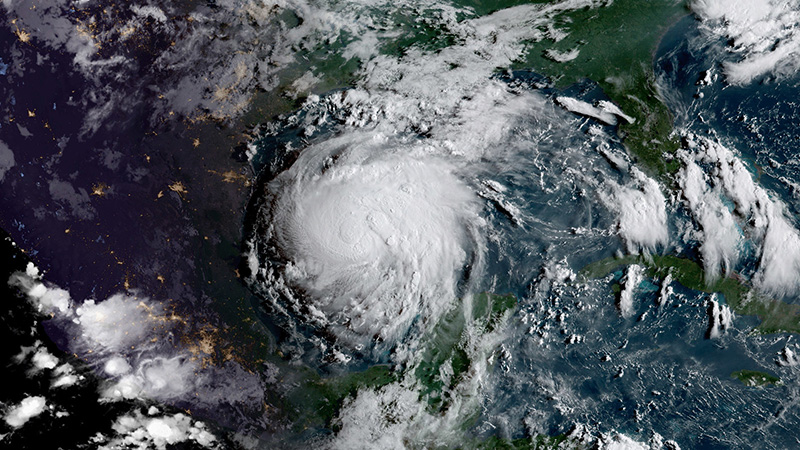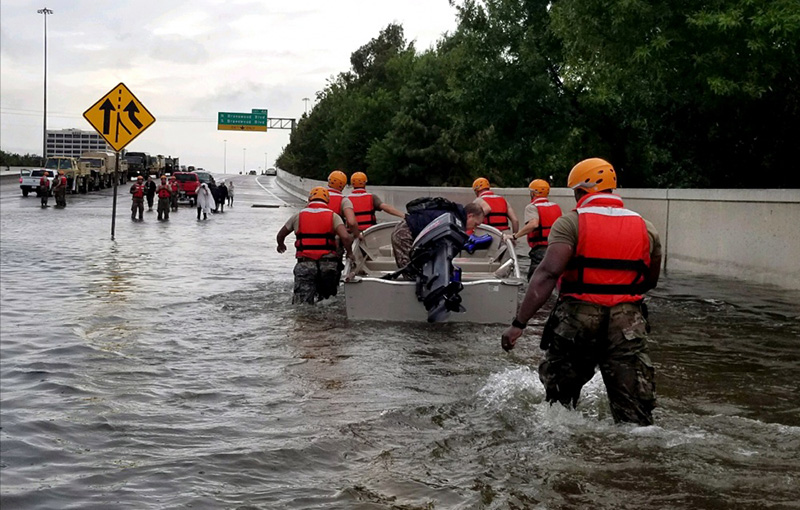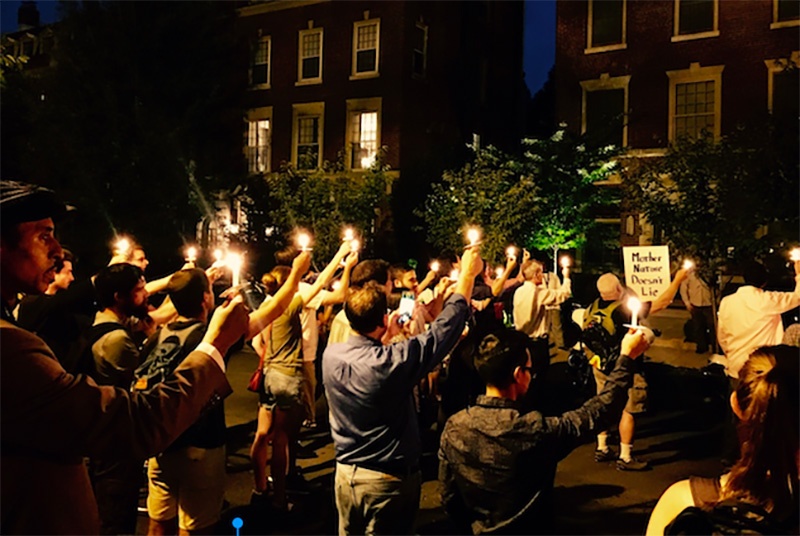After Climate Disasters Harvey and Irma, Facing the New Normal
Hurricanes Harvey and Irma are awful reminders that the climate crisis is not an abstract issue to be faced by future generations—it’s happening right now, and it’s devastating communities and taking lives.
When I was fresh out of college, I had the privilege of moving from California to Texas to work with some of the most amazing people I have ever had the privilege of knowing: the people of Harris and Matagorda Counties.
You may not have heard of Harris County, but you know its major city: Houston. And neighboring Matagorda is a rural county about 100 miles south of Houston that’s home to about 35,000 people, many of whom support their families by farming or shrimping.

In Southeast Texas, I got to know some of the most tenacious, brilliant, and inspiring people. And in a long, hard fight that too many people haven’t heard about, the communities I worked with successfully stopped a coal plant from spewing more than 40 years of pollution into our atmosphere.
The governor at the time, Rick Perry—a climate denier who now runs the federal Energy Department—was dead-set on seeing a coal plant built that would devastate the already poor air quality in Houston, Texas, but he didn’t count on the love that drove many community members to protect it against the threat of fossil fuel pollution.
Thanks to the communities' years of organizing, a campaign that once seemed like a “lost cause” turned into a stunning victory that exemplified what “people power” really means.

At the end of August, Harris and Matagorda Counties—and hundreds more communities all over the Gulf Coast in Texas and Louisiana—were devastated by the effects of climate change in the form of Hurricane Harvey. Harvey brought so much rain to parts of southeast Texas that it’s being called a “once-in-a-million-year event.”
Then, only two weeks after Hurricane Harvey devastated the Texas communities where where many of my friends still call home, people in Florida and across the Caribbean were battered by yet another fossil-fueled superstorm: Hurricane Irma.
In echoes of Hurricane Katrina more than ten years ago, the people who were just hit the hardest by Hurricanes Harvey and Irma are disproportionately poor, people of color, or immigrants—the people who have done the least to cause the climate crisis.
In another layer of cruelty, some undocumented immigrants fleeing Harvey or Irma were forced to choose between the risks of the flood zone and the risk of deportation after reports that Border Control checkpoints in Texas would remain open along evacuation routes and fears that Florida hurricane shelters would check immigration papers at the door.
Climate chaos is unjust and cruel.
In echoes of Hurricane Katrina more than ten years ago, the people who were just hit the hardest by Hurricanes Harvey and Irma are disproportionately poor, people of color, or immigrants—the people who have done the least to cause the climate crisis.
Worse still, Irma and Harvey aren’t the only climate disasters people—and vulnerable communities in particular—are facing right now.
As I write this, some of the same communities battered by Irma are bracing for a potential hit by yet another hurricane, Jose. People in Bangladesh, India, Nepal and Sierra Leone are recovering from record-breaking floods from unusually severe monsoon rains. In the Western United States, from southern California to Oregon to Montana, massive wildfires—covering more than 2 million acres of forest—have been burning for weeks.

Meanwhile, Donald Trump’s response has been both callous and feeble. His administration is filled with fossil fuel executives and accomplices who enabled this crisis and profited from it.
At a time when the US should be directing resources toward bold climate policy to prevent disasters like these from getting worse, our government is run by climate deniers and fossil-fuel industry puppets who are dismantling the EPA, gutting disaster safety and relief programs, and censoring the mere mention of “climate change.”
And on top of it all, they’re pushing to extract and burn more of the fossil fuels that will make this crisis worse.
The Trump administration is filled with fossil fuel executives and accomplices who enabled this crisis and profited from it.
But even though the White House is willing to let our planet burn for profit, that doesn’t mean they’ll get away with it. We have real power to build the safe, just, thriving world we want to see.
At the Power Shift Network, I’m filled with hope every day working with young leaders across the country who are fighting for people-powered solutions to the crises we’re in—solutions like putting political power into the hands of people who truly represent America’s most vulnerable communities, fighting for energy systems that are powered by renewable sources and controlled by local communities, and empowering grassroots leaders to stand up to the fossil fuel industry in cities and states and win.
Even though the White House is willing to let our planet burn for profit, that doesn’t mean they’ll get away with it. We have real power to build the safe, just, thriving world we want to see.
Right now, the most important thing we can do is support the people who now need to rebuild their lives after these disasters.
But next—to prevent even worse climate disasters and build the just, thriving, and resilient future we need—it will be up to all of us to fight for a power shift for the long haul. And I believe that we will win.
What You can do to Help
To support victims of Hurricane Irma: Donate here to the Hurricane Irma Community Recovery Fund to support grassroots Florida organizations helping communities recover and rebuild from this disaster.
To support victims of Hurricane Harvey: Donate here to the Hurricane Harvey Community Relief Fund, a locally-organized emergency fund directing aid to vulnerable Houstonians need to ensure access to critical services, from first response and basic needs to healthcare, housing, and immigration.